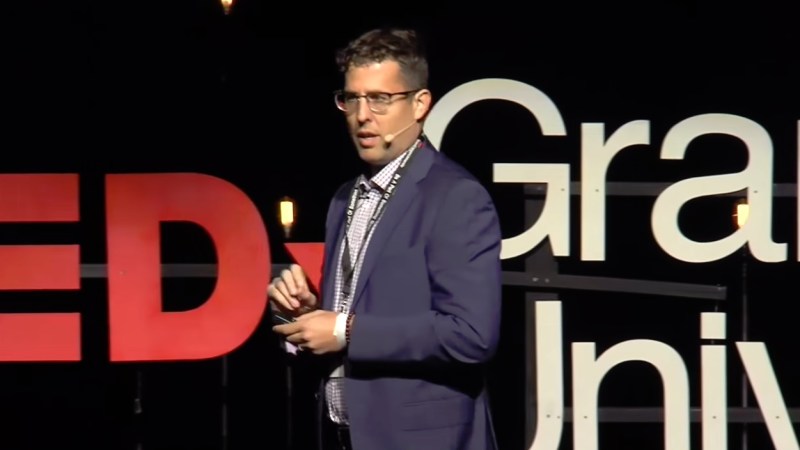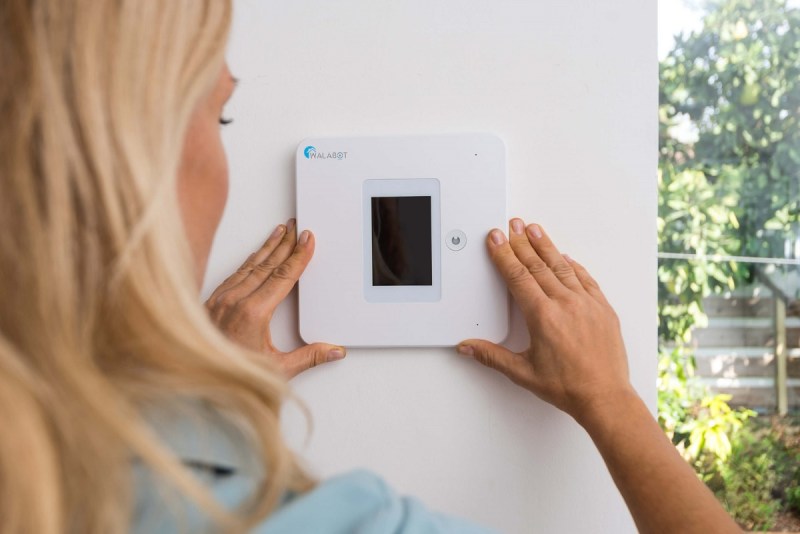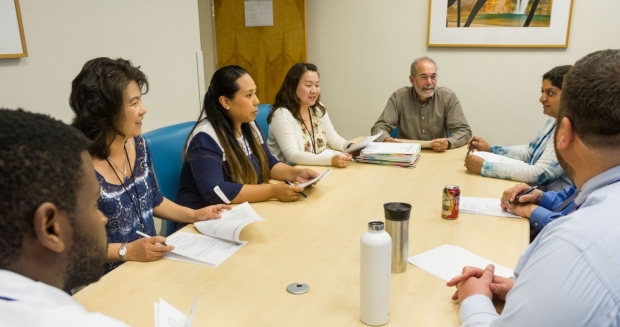I didn’t write 10 tech or game stories yesterday. Instead, I took the day off and helped my 85-year-old mother move from her independent living studio to her own room in a memory care facility. Instead of learning about new tech, my tasks included things like spackling a wall. It was a lot of work, and the day left me exhausted.
My mother has severe dementia. She still remembers me and can even recite her social security number. But her short-term memory is shot. Within a few minutes, she will forget what she said to me. We have repetitive Groundhog Day conversations all the time.
Taking care of her has been a trial, as I am the sole caregiver, in addition to taking care of my own family. But I believe my experience shows a lesser-seen slice of life in Silicon Valley, where old people tend to be forgotten and new things take center stage.
High costs, degrees of memory loss
https://www.youtube.com/watch?time_continue=32&v=rDVUAdxsg7Y
June 5th: The AI Audit in NYC
Join us next week in NYC to engage with top executive leaders, delving into strategies for auditing AI models to ensure fairness, optimal performance, and ethical compliance across diverse organizations. Secure your attendance for this exclusive invite-only event.
This is not the cheapest place in the world for the elderly. That in itself has been stressful, and I’ve seen two large senior care facilities in my area shut down as landlords look for more lucrative ways to use their property. My mother’s housing costs are moving past $6,300 a month.
I moved her closer to me in San Jose, California in December 2017. She was just 10 minutes away, and I figured I could keep a better eye on her. But lots of things went awry.
She didn’t socialize well with the crowd at her new place, partly because of hearing and memory challenges. We saw her once a week or so, but the demands on my time were heavier. I got her a transcription phone, but she really didn’t know how to use it and would often call me five or 10 times a day, asking if I had called her. Her memory got worse and worse. She asked the same questions over and over, like whether the maids were stealing her stuff.
She hasn’t been able to drive for a few years now, and I took over her finances and have legal power of attorney. I go through her mail. I rented out her place using a management company that does everything via email.
At first, she was pretty independent. But that seems like ages ago. Now she is starting to forget how to manage things like basic hygiene.
The last straw was that she started getting lost on walks. Twice she was found by the facility’s bus driver, wandering down a busy street, totally lost.
The managers suggested I move her to memory care, where the place is locked down and staff checks in on her every 30 minutes or so. She has less freedom, as of today, but she has better care. The caretakers will lead her around the place, taking her to meals, dispensing her medication, and getting her into group activities.
The move took a lot of paperwork. I had to get her assessed for memory care. I arranged for movers, and we took her stuff over. We have downsized her belongings multiple times, from a three-bedroom home in Sacramento to a studio and now to a bedroom within a larger three-bedroom apartment. I’ve got many of our mementos — like my old turntable/stereo and our family samurai swords — locked away in a storage garage.
I would say that watching her gradual and inevitable decline has been the toughest part. Fragments of her memory are still there, but she’s pretty helpless at this point. It’s terrifying for her, and it is terrifying for me.
I interviewed John DenBoer about dementia last year and was struck when he noted that the bodies of people with dementia are still alive, but their brains are not. Maybe it should have been obvious, but this helped me realize me that I could lose my mother before she actually died.
Being a caregiver

Above: John DenBoer gave a TEDx Talk on disrupting dementia.
I’ve learned along the way that I am not built to be a great caregiver. I tend to walk fast, and my mother walks slowly. I’m one of those Silicon Valley faster-movers. But I have to really slow down with my mother. Sometimes that’s a great thing to do, and it can lead to surprising conversations. Other times, it’s frustrating.
I also have to shout or speak loudly when my mother’s hearing aid is on the fritz. She doesn’t remember to put fresh batteries in. And when I’m raising my voice like that, it takes a lot of effort not to sound angry. I found that sometimes having to shout at her actually did make me angry.
I’m well aware that caregiving requires an entirely different state of mind than the normal things that I do. I have gained a lot of respect for anyone who does it, and I appreciate those who have helped my mother. I feel a certain bond with people who say they have gone through the same thing, like Phil McKinney of CableLabs. I would not wish this on anyone. But taking care of somebody else is good for your soul.
Tech isn’t really helping yet

Above: Vayyar’s Walabot Home detects motion.
I’ve tried a few tech solutions. A few years ago, I gave my mother an iPhone, thinking it would be easy for her to learn to use. But she had never used a touchscreen, and she couldn’t remember how to enter the passcode. I directed her to an Apple store for a Genius Bar lesson. She went, but she couldn’t hear the person giving the lesson, who was helping several people at a time.
My kids created posters and wrote detailed descriptions of how to use the phone. That didn’t work. We wound up getting rid of the iPhone.
I was a guinea pig for the Vayyar Walabot, which detects falls in targeted spaces, like the bathroom. The system generated a lot of false alarms before the Vayyar folks calibrated it properly. My mother hasn’t fallen, thankfully, so I don’t know how well it works.
I set up Wi-Fi in her room via cable TV. I used that to download pictures into a digital picture frame, so she could always see images of her grandchildren, rotating through the frame. Those pictures gave her pleasure and triggered memories.
But she would turn it off for some reason. She had cable TV via the internet, but she didn’t know how to turn it on with the fancy remote, which had a billion buttons. The voice commands were also something that were just too complicated for someone with dementia to use. Even modern innovations like Amazon Alexa would be too complex for her.
Tips for memory care

Above: Stanford/VA Alzheimer’s Center
I have learned some new things during this journey. The Stanford/Veterans Administration Alzheimer’s Center in Palo Alto is doing free memory evaluations for older people. This is a very useful service, as insurers do not make the process easy.
A doctor and nurse separately spent about 45 minutes each evaluating my mother, and then they explained their findings.
I’ve learned that hearing aids are expensive, but service from places like Hearwell is generally good. Products from new competitors, such as app-based Zvox hearing devices, should help bring prices down.
I also learned that genetic services such as 23andMe can tell you if you are at risk for Alzheimer’s, based on your genetic history.
Don’t forget about the elderly
As I noted earlier this year, I was pleasantly surprised to see so many new tech companies focus on older people, elder health, and related issues. For so many years, designers just forgot about old people. But millions upon millions of them need some kind of help.
The AARP said in “2019 Tech Trends and the 50+” that 115 million Americans over 50 represent an enormous market for technology and that by the end of the next decade this group is projected to spend $84 billion on tech products.
But we are not in tech heaven yet. Are there things I wish for? Better services for the elderly, for sure. Better insurance, yes. Lower costs, of course. Technology that really helps. Not just for my mother, but for the stressed-out caregivers as well. Anything that gives me more time to deal with her and my own family.
Taking care of my mother is rewarding. And there is no one responsible for doing it except me. But I’ll take any help I can get.
For the young folks of Silicon Valley, I would say that you should not forget about the elderly and their problems. You should apply your brains to help them. Because one day the loss of youth and the fading of memory will also be your problem.


